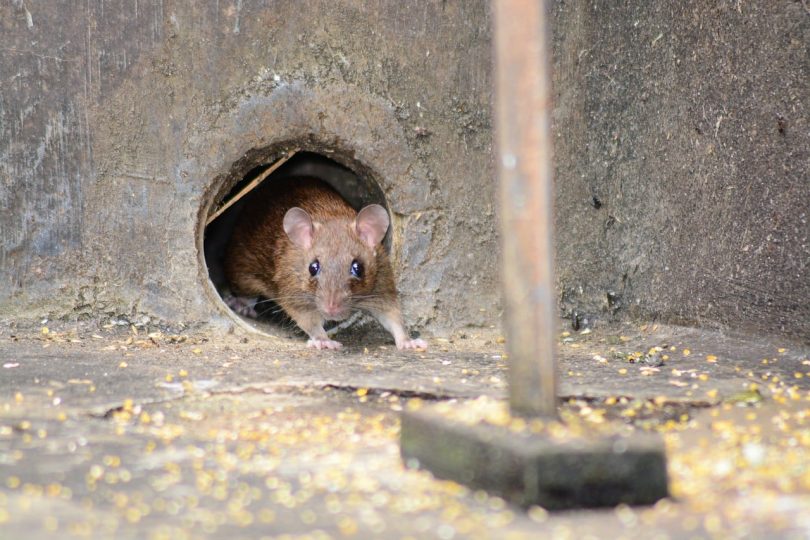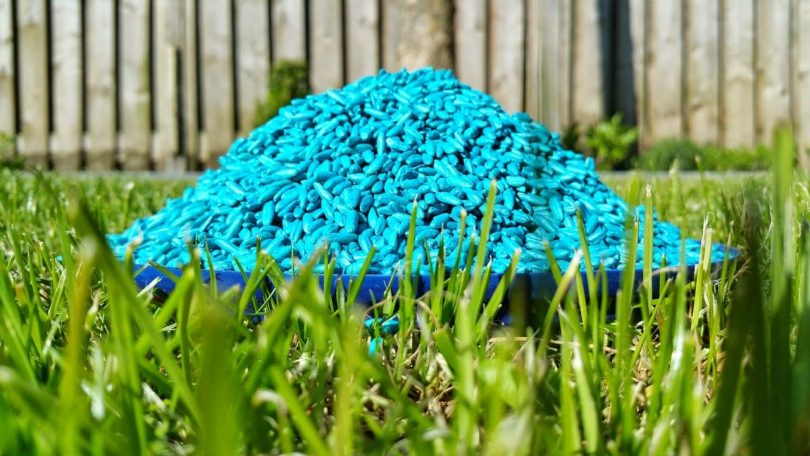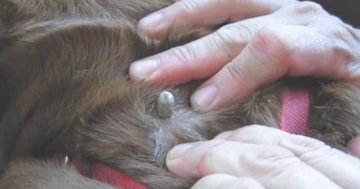
Pet owners must contact a vet as soon as they realise their animal has eaten a mouse or rat bait. Photo: Bega & Cobargo Veterinary Hospitals.
Pet owners are being warned about a spike in the number of dogs poisoned by rat and mouse baits on the NSW Far South Coast as a plague of rodents scurries across the state.
During the past month, Bega & Cobargo Veterinary Hospitals have been treating two dogs per day for rat and mouse bait poisoning.
Veterinarian Dr Nikki-Lea Esmond said all the dogs she’s treated have survived, but some have come close to death.
“We have seen numerous cases that have been in an advanced stage of toxicity,” she said.
“In the advanced stage of toxicity, the animal requires a blood or plasma transfusion as the rat and mouse baits cause the blood to stop clotting.
“When the blood stops clotting effectively, this causes bleeding into the lungs, and any cuts, knocks or bruises could be fatal.”
Most of the dogs are eating the baits, but some have eaten a poisoned rat or mouse, said Dr Esmond.
“If animals eat the bait, this is most dangerous as they often eat an adequate amount to cause toxicity,” she said.
“If they eat the rats or mice, they could still potentially be poisoned, however they would have to eat huge numbers of poisoned rats or mice.”
Dr Esmond said cats are also at risk of eating rat and mouse poison, but are less likely to.
She said pet owners must contact a vet as soon as they realise their animal has eaten a mouse or rat bait.
“The animal will be made to vomit up the toxin and then go onto medication to counteract the effects of the toxin, but they need to be made to vomit within one to two hours if possible,” said Dr Esmond.
“The issue is that many pet owners don’t understand how rat and mouse baits work. Most rat and mouse baits sold in Australia are anticoagulants so prevent the blood from clotting. This takes time to work – up to two to three days depending on how much has been ingested and the animal’s metabolism.

Look out for blue or green dye in your pet’s vomit, faeces or around their mouth. Photo: Bega & Cobargo Veterinary Hospitals.
“People see their pet eat mouse or rat bait, but it doesn’t kill them or make them sick right away so they think it will be fine. This is far from the case. If left, the anticoagulant will start to work and can make the animal very sick.”
Initial signs your pet may have eaten rodent bait include blue or green dye in vomit, faeces or around the mouth because most rat and mouse baits have a blue or green dye in them.
Progressive signs that your pet may have eaten rat or mouse bait, and is bleeding internally, include lethargy and reluctance to exercise; pale gums; panting or heavy breathing; swollen abdomen; coughing or vomiting blood; blood in faeces; swollen joints and lameness; and collapse.
Rodent populations have spiked during the past 12 months as the farming regions on Australia’s eastern seaboard have benefited from solid rainfall, leading to improved crop growing and providing rodents with favourable conditions for eating and breeding.
In a bid to kill off the growing numbers, mouse bait manufacturers have been approved to double the lethality of their products.
The Australian Pesticides and Veterinary Medicines Authority has issued a permit for the use of bait with 50 milligrams of zinc phosphide per kilogram, up from previous levels of 25 milligrams per kilogram.
It’s a big win for grain producers, but presents more of a risk to pet owners.







